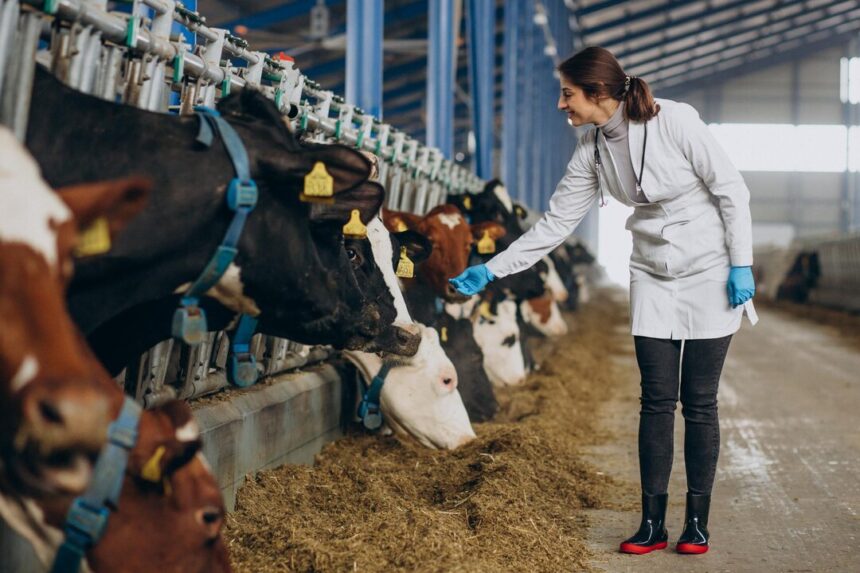Livestock play a crucial role in agriculture, providing meat, dairy, and other essential products. However, like any living creatures, they are susceptible to various ailments and health issues. Recognizing the signs of common livestock ailments and knowing how to treat them promptly is essential for maintaining the health and welfare of your animals. Here is a comprehensive guide to help livestock owners identify and manage common ailments:
- Respiratory Infections:
Common signs include coughing, nasal discharge, and labored breathing. Keep animals in well-ventilated areas, provide clean bedding, and consult a veterinarian for appropriate antibiotics if needed. - Gastrointestinal Disorders:
Symptoms may include diarrhea, dehydration, and loss of appetite. Ensure access to clean water, provide electrolyte solutions if necessary, and adjust feeding practices to prevent digestive upset. - Parasitic Infestations:
Parasites such as worms and ticks can cause weight loss, anemia, and skin irritation. Implement regular deworming and tick control measures, rotate pastures, and maintain good hygiene practices. - Foot and Hoof Issues:
Lameness, swelling, and hoof lesions may indicate foot rot or other hoof disorders. Keep housing areas clean and dry, trim hooves regularly, and provide proper hoof care and treatment as needed. - Metabolic Disorders:
Conditions like ketosis and milk fever can affect dairy cattle, leading to decreased milk production and other health issues. Monitor feed quality and quantity, provide balanced nutrition, and consult a veterinarian for specialized treatment if necessary. - Reproductive Problems:
Infertility, abortions, and difficult births can occur in breeding livestock. Ensure proper breeding management, maintain herd health, and seek veterinary assistance for reproductive evaluations and interventions. - Heat Stress:
High temperatures and humidity can lead to heat stress in livestock, causing dehydration, reduced feed intake, and heat stroke. Provide shade, ample water, and cooling measures such as fans or misters during hot weather. - Poisoning and Toxicity:
Ingestion of toxic plants, chemicals, or contaminated feed can result in poisoning symptoms such as weakness, convulsions, and death. Identify and remove toxic plants from pastures, store chemicals safely, and provide clean, uncontaminated feed and water sources. - Nutritional Deficiencies:
Inadequate nutrition can lead to poor growth, reproductive problems, and metabolic disorders in livestock. Consult with a nutritionist to formulate balanced diets, supplement deficiencies as needed, and monitor body condition scores regularly. - Infectious Diseases:
Diseases such as anthrax, brucellosis, and foot-and-mouth disease can pose significant threats to livestock health and public health. Implement biosecurity measures, vaccinate against common diseases, and report any suspected cases to veterinary authorities for diagnosis and control measures.
When treating livestock ailments, it’s crucial to consult with a qualified veterinarian for accurate diagnosis and treatment recommendations. Self-diagnosis and treatment without professional guidance can lead to ineffective or harmful outcomes. Additionally, prioritize preventive measures such as vaccination, biosecurity, and proper herd management practices to minimize the risk of disease and promote overall herd health.
By being vigilant and proactive in monitoring livestock health, recognizing early signs of illness, and seeking appropriate veterinary care when needed, livestock owners can help ensure the well-being and productivity of their animals, contributing to sustainable and profitable livestock operations.
Join 'Farmers Mag' WhatsApp Channel
Get the latest Farming news and tips delivered straight to your WhatsApp
CLICK HERE TO JOIN






